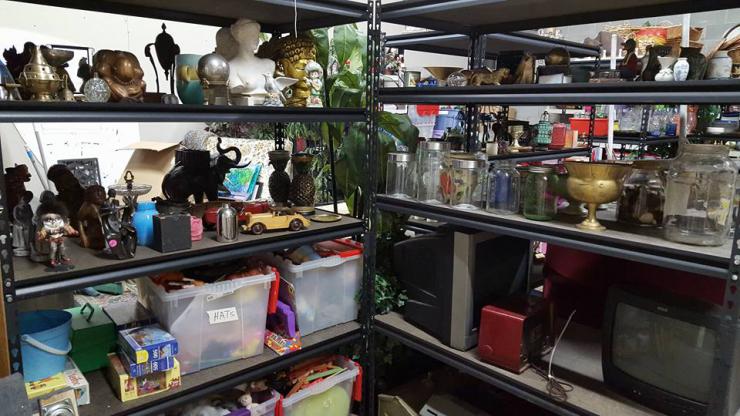From Theatre to Film
Designing a New Career
You spend years in the theatre business, feel at the top of your game, and life throws you an unexpected wind of change. This is exactly what David Butler, a production designer based out of Buffalo, went through two years ago when the tax credits for film production companies began trickling into his town. Through recommendations from the theatre community, Butler got a call that changed the direction and focus of his career after three decades working as a designer. He notes, “There was a level of terror involved in the transition. I always thought that film would be fun to do, but I didn’t know the language.”
Because of my theatre background, I felt very comfortable with my career moving into film. From the condensed prep to the breaking down of the script, it was all very familiar to me. —Amy Kempf
Many people who have made a career out of their community’s theatre industry have found themselves with the same unexpected career changes and benefits. Starting in the early 2000s, states have begun to roll out incentives for production companies to produce film and television in their localities. Although these tax incentives may be old news, they continue to expand freelance career opportunities from the once exclusive club of Hollywood and New York City to new locals who share some of the same skills and work ethic. Productions are now shooting more on-location partly because of the cultural and architectural assets that other cities and locations hold. Fellow entertainment and theatre professionals in these areas see the impact first-hand.
Amy Kempf, an art director who has flourished from this film renaissance, notes that her background in regional theatre has made her comfortable with this natural progression in her career. She says, “Because of my theatre background, I felt very comfortable with my career moving into film. From the condensed prep to the breaking down of the script, it was all very familiar to me. The standards and expectations are the same; everyone works at an elevated level.”
Now, just to put in a disclaimer, I am not trying to say that working in film is just like working in theatre. In fact, I most definitely am not. It is true that the skillsets are the same, but the mediums are different. The languages are different. Film is theatre on steroids. A lot is the same design-wise, but completely different at the same time. So don’t be young and boastful when arriving to set on the first day thinking you know everything because you have done this before.

I have been able to see this transition, and as my work from theatre to film continues to be an ongoing learning experience, I have the foundations now to be an industry professional in a town where the industry is just in its infancy.
There is nothing that you could adequately compare to life on set. It is an intense, high-stress fantasy that doesn’t mean anything yet means everything, every moment. It is fun. It is frustrating. It is theatre on heroin and steroids. However, most importantly, it is work. For those coming from the theatre world taking these jobs, the learning curve is quick. As with life, you learn something new every single day:
- The Set is a Walking Installation. You can put up flats (a three-wall set), add some set decoration, and call it a day. However, now you have to be ready for the camera to turn around and film a reverse. The days of two-dimensional designs are over, and you have to make a living room a living room. It must be lived in in every direction. When the Director of Photography calls for insert shots, cutaway shots that show more of the set and action, try to hide your smile! Just try!
- Get ready for your Close-up. The days of getting away with styrofoam is over. Unless there is extra attention on detail and realism, the camera will pick up on your deception. That means filled wallets, coffee in the cups, and correct names on the pill bottles. As a prop master, I’ve learned that it is hard to get away with anything. Again, detail is key on everything. You don’t want your hard work to be cut, so make it count!
- Can’t Handle the Stress? Then, don’t! Film production is tech week, everyday twelve hours a day. Especially in the art department, you are running around on your toes the entire the time. You cannot sit, watch a rehearsal, and then figure everything out. Time is short. Sometimes you know what you are doing next, sometimes you don’t. Yes, there is a call sheet, and yes they do their best to stick to it. However, be ready to go to scene fifty-seven that’s scheduled for tomorrow, today. Be ready, have options, and never say no. As a book once told me, “If you have to cry, go outside!” Don’t let them see you sweat.
As David Butler points, “You don’t have an endless amount of time to prep. A lot of times, everything is happening simultaneously.” You have an hour to have everything ready. No complaining, just do your job.
Communities are benefiting tremendously from the influx of film production work. People are growing closer and gaining a sense of communal pride for their town’s local assets. The cultural areas, including theatre, are learning to adapt to this new flow of work. With the help of local film commissions, colleges and other institutions are acknowledging this and offering classes to help grow this “new” industry. The whole city benefits as theatre actors embrace acting for film, set designers become production designers, and old abandoned warehouses become sets. I have been able to see this transition, and as my work from theatre to film continues to be an ongoing learning experience, I have the foundations now to be an industry professional in a town where the industry is just in its infancy. A couple of years down the pike, Kempf’s community continues to solidify its space in the film industry. Prop shops are opening and locals are embracing this new line of work. The tax credits may be short lived, but for those kissed by the addiction of film production work, they are grabbing the bull by the horns and making sure their career change is sustainable.


Comments
The article is just the start of the conversation—we want to know what you think about this subject, too! HowlRound is a space for knowledge-sharing, and we welcome spirited, thoughtful, and on-topic dialogue. Find our full comments policy here
Seth, I totally agree with your analogy that Film is like constantly being in tech! I've worked on two small independent films and I felt the same way! Congratulations on getting a hold of the transition from theatre into film.